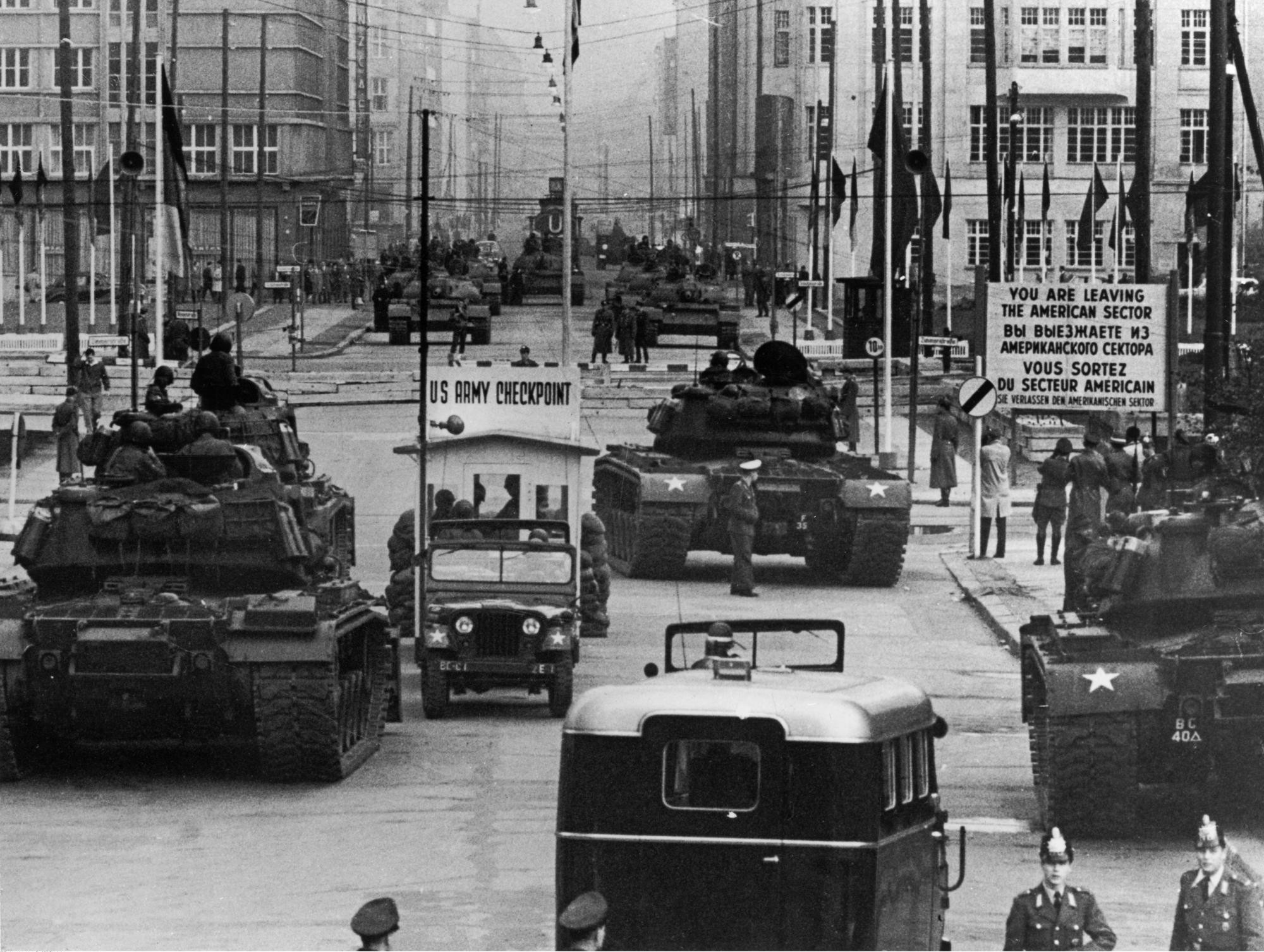
Berlin Crisis of 1961
The Berlin Crisis of 1961 (German: Berlin-Krise) was the last major European political and military incident of the Cold War concerning the status of the German capital city, Berlin, and of post–World War II Germany. The crisis culminated in the city's de facto partition with the East German erection of the Berlin Wall.
The Berlin Crisis began in June 1961 when Soviet Premier Nikita Khrushchev, meeting with US President John F. Kennedy at the Vienna summit, reissued an ultimatum which demanded the withdrawal of all armed forces from Berlin, including the Western armed forces in West Berlin. The East German government also sought a way to stop its "brain drain" as its population fled west through Berlin, made possible by the city's four-power status and the allowance of free travel. No agreement was reached and in August 1961, with Khrushchev's backing, East German leader Walter Ulbricht ordered the closing of the border and the construction of a wall around West Berlin. A brief stand-off between American and Soviet tanks occurred at Checkpoint Charlie in October following a dispute over free movement of Allied personnel; the confrontation ended peacefully after Khrushchev and Kennedy agreed to withdraw the tanks and reduce tensions.
History[edit]
1961 Berlin ultimatum[edit]
At the Vienna summit on 4 June 1961, tensions rose. Meeting with US President John F. Kennedy, Soviet Premier Nikita Khrushchev reissued the Soviet ultimatum to sign a separate peace treaty with East Germany and thus end the existing four-power agreements guaranteeing American, British, and French rights to access West Berlin and the occupation of East Berlin by Soviet forces.[1] However, this time he did so by issuing a deadline of 31 December 1961. The three powers responded that any unilateral treaty could not affect their responsibilities and rights in West Berlin.[1]
Rising tensions[edit]
In the growing confrontation over the status of Berlin, Kennedy undercut his own bargaining position during his Vienna summit negotiations with Khrushchev in June 1961. Kennedy essentially conveyed US acquiescence to the permanent division of Berlin. This made his later, more assertive public statements less credible to the Soviets.[2] Kennedy decided on a flexible policy proposed by his younger advisors, with only a few concessions to the hardliners around Dean Acheson. The United States now defined three vital interests in its policy for Berlin, and linked all of them only to the western part of the city: the presence of Western troops in West Berlin; the security and viability of the western sectors; and Western access to them.[3]
As the confrontation over Berlin escalated, Kennedy delivered on July 25 a television speech in Washington on CBS, and broadcast nationwide in the US. He reiterated that the United States was not looking for a fight and that he recognized the "Soviet Union's historical concerns about their security in central and eastern Europe." He said he was willing to renew talks, but he also announced that he would ask Congress for an additional $3.25 billion for military spending, mostly on conventional weapons. He wanted six new divisions for the Army and two for the Marines, and he announced plans to triple the draft and to call up the reserves. Kennedy proclaimed: "We seek peace, but we shall not surrender."[4]
Vacationing in the Black Sea resort of Sochi, Khrushchev was reported to be angered by Kennedy's speech. John Jay McCloy, Kennedy's disarmament adviser, who happened to be in the Soviet Union, was invited to join Khrushchev. It is reported that Khrushchev explained to McCloy that Kennedy's military build-up threatened war.